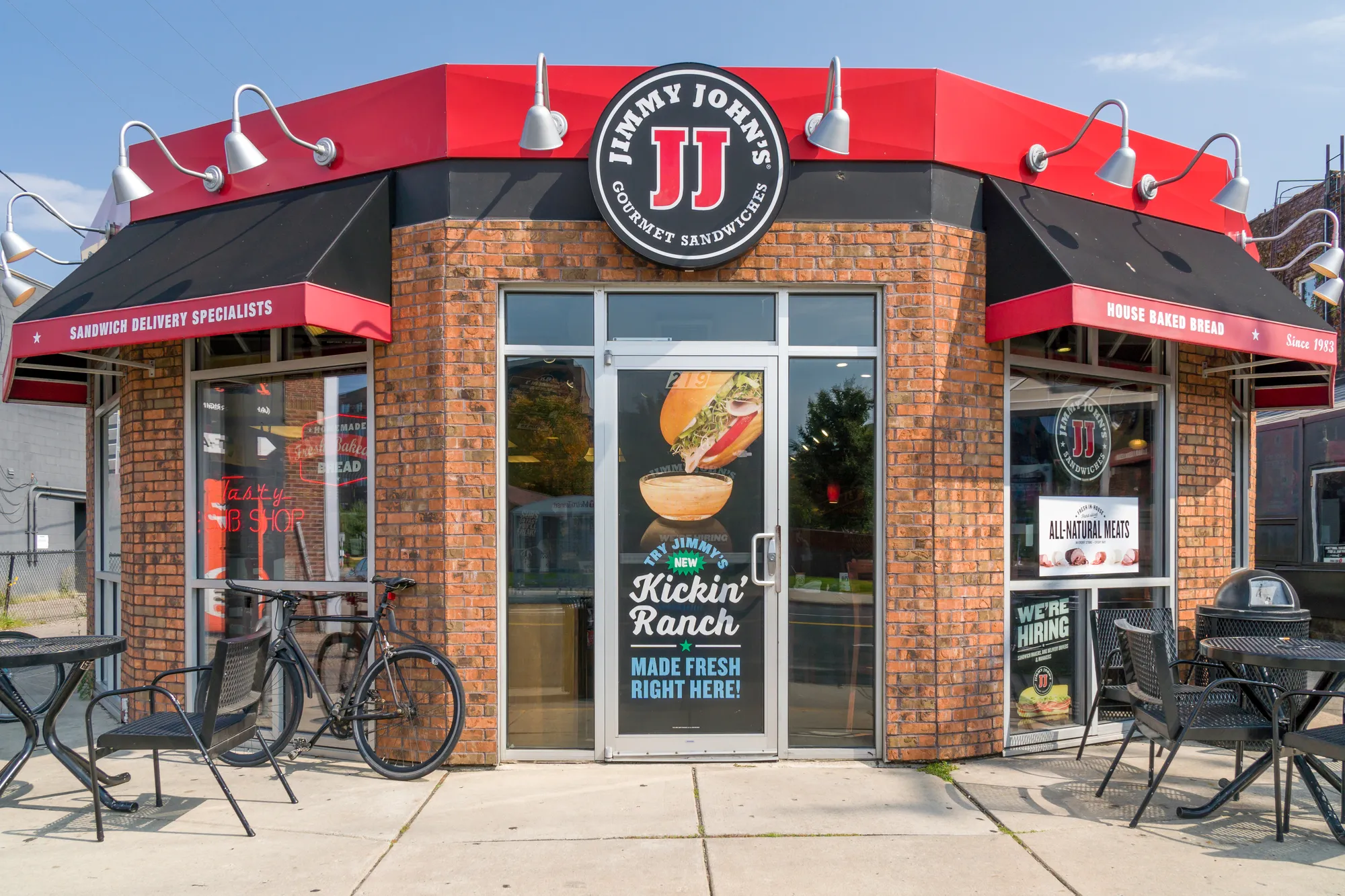 Jimmy John’s violates federal and state antitrust laws by prohibiting its franchisees from hiring each other’s employees, according to a class action lawsuit filed by a former employee.
Jimmy John’s violates federal and state antitrust laws by prohibiting its franchisees from hiring each other’s employees, according to a class action lawsuit filed by a former employee.
The no-hire, no-solicit contract provision at issue is part of the franchise agreement between defendant Jimmy John’s and its many sandwich restaurant franchisees.
Plaintiff Sylas Butler, a former Jimmy John’s delivery driver and in-store employee, says these agreements unlawfully restrict Jimmy John’s employees from changing jobs between franchisees.
The restriction allows the entire Jimmy John’s business network to drive down employee wages and exercise excessive control over their workers’ employment opportunities, Butler argues.
Under terms of the franchise agreement, Jimmy John’s franchisees are prohibited from hiring any current employee of Jimmy John’s or a Jimmy John’s franchisee, or any employee who has worked for Jimmy John’s during the preceding 12 months. Franchisees are likewise prohibited from soliciting such persons to seek employment with them.
The penalties for any franchisee who breaks this agreement are enormous. The franchisee could have its franchise terminated and be liable to Jimmy John’s for up to three years’ royalties as liquidated damages, plus a $50,000 penalty in cases where the “poached” employee is in a management position.
Butler points out that the $50,000 penalty alone is close to one-and-a-half times the amount of the Jimmy John’s initial franchise fee.
Almost all of Jimmy John’s 2,700 U.S. locations are franchisees. That means nearly the entire chain is subject to the no-hire agreements, Butler says, effectively locking out current and former Jimmy John’s employees from new employment with a different franchisee.
Other attempts by Jimmy John’s to limit employee mobility have faced pushback from state officials.
In 2016, the attorneys general of Illinois and New York initiated legal challenges to Jimmy John’s practice of making all store employees sign non-competition agreements. The agreements barred even low-wage earning shop employees from working for any competing sandwich business within up to three miles of any Jimmy John’s location for up to two years after the end of their Jimmy John’s employment.
Jimmy John’s resolved both states’ actions by agreeing to strike the individual employee non-competition provision from its employment resources. But the no-hire agreements among franchisees remain in effect, continuing to restrict employees’ ability to move among Jimmy John’s employers.
Butler alleges that after working at a Jimmy John’s franchise location in Illinois for about a year and a half, he quit his job in January 2017 when his schedule was reduced to four hours per week. Even though he has training and experience as a Jimmy John’s employee, Butler says other Jimmy John’s franchisees will not hire him for fear of violating the no-poaching agreements.
Butler proposes to bring this antitrust class action lawsuit on behalf of all persons in the U.S. who are current or former employees of a Jimmy John’s franchisee.
He is asking the court to permanently enjoin Jimmy John’s from engaging in the alleged anticompetitive behavior described here or in any other unreasonable restriction on competition. He seeks an award of all applicable damages, restitution and disgorgement, court costs and attorneys’ fees.
Butler is represented by attorneys Derek Brandt, Richard McCune, Michele Vercoski and Joseph Sauder of McCune Wright Arevalo LLP.
The Jimmy John’s No-Hire Agreement Antitrust Lawsuit is Butler v. Jimmy John’s Franchise LLC, et al., Case No. 3:18-cv-00133, in the U.S. District Court for the Southern District of Illinois.
UPDATE: On July 1, 2020, Jimmy John’s filed a motion in opposition to Class certification in a lawsuit challenging the company’s alleged no poaching employment agreements.
ATTORNEY ADVERTISING
Top Class Actions is a Proud Member of the American Bar Association
LEGAL INFORMATION IS NOT LEGAL ADVICE
Top Class Actions Legal Statement
©2008 – 2026 Top Class Actions® LLC
Various Trademarks held by their respective owners
This website is not intended for viewing or usage by European Union citizens.















3 thoughts onJimmy John’s Class Action Says Franchise Agreement Unfair to Employees
Please add me
Please add me to the lawsuit.